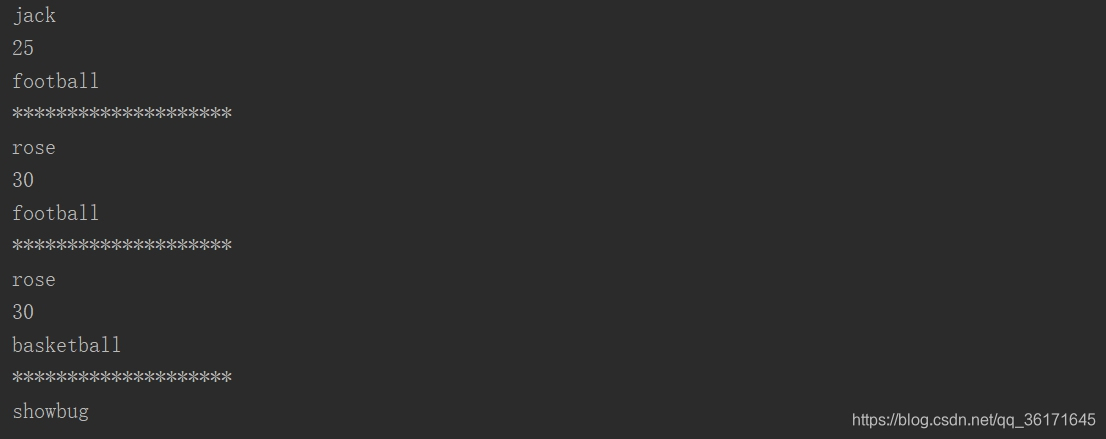Python 的代码测试问题,如何解决


为什么执行程序后会没有反应,在点击运行后,直接显示“进程已结束,退出代码0”,没有得到测试代码方法会得到的输出。
试试下面这个代码:
name_function.py:
def get_formatted_name(first, last):
full_name = f"{first} {last}"
return full_name.title()
main.py:
import unittest
from name_function import get_formatted_name
class NameTestCase(unittest.TestCase):
def test_first_last_name(self):
formatted_name = get_formatted_name('janis', 'joplin')
self.assertEqual(formatted_name, 'Janis Joplin')
print(formatted_name)
if __name__ == '__main__':
unittest.main()
第2张截图,第12行改成:
if name == 'main':
有帮助的话,请点采纳该答案~
- 这个问题的回答你可以参考下: https://ask.csdn.net/questions/7671088
- 这篇博客你也可以参考下:# 学习Python的第一天,我的个人概述 1、注释的作用:对代码加以说明方便人们的理解,增加程序的可读性。 2、单行的注释:就是对单行代码进行文字说明,没有执行意义,注意注释和代码至少要有两个空格
- 除此之外, 这篇博客: Python类的私有属性与私有方法的使用中的 请运行下面代码尝试(如果搞不定,先看后面的讲解,再尝试): 部分也许能够解决你的问题, 你可以仔细阅读以下内容或跳转源博客中阅读:
*xx: 公有变量
_x: 单前置下划线,私有化属性或方法,from somemodule import 禁止导入,类对象和子类可以访问
_xx:双前置下划线,避免与子类中的属性命名冲突,无法在外部直接访问(名字重整所以访问不到)
xx:双前后下划线,用户名字空间的魔法对象或属性。例如:init , __ 不要自己发明这样的名字
xx:单后置下划线,用于避免与Python关键词的冲突
通过name mangling(名字重整(目的就是以防子类意外重写基类的方法或者属性)如:_Class__object)机制就可以访问private了。#coding=utf-8 class Person(object): def __init__(self, name, age, taste): self.name = name self._age = age self.__taste = taste def showperson(self): print(self.name) print(self._age) print(self.__taste) def dowork(self): self._work() self.__away() def _work(self): print('my _work') def __away(self): print('my __away') class Student(Person): def construction(self, name, age, taste): self.name = name self._age = age self.__taste = taste def showstudent(self): print(self.name) print(self._age) print(self.__taste) @staticmethod def testbug(): _Bug.showbug() # 模块内可以访问,当from cur_module import *时,不导入 class _Bug(object): @staticmethod def showbug(): print("showbug") s1 = Student('jack', 25, 'football') s1.showperson() print('*'*20) # 无法访问__taste,导致报错 # s1.showstudent() s1.construction('rose', 30, 'basketball') s1.showperson() print('*'*20) s1.showstudent() print('*'*20) Student.testbug()
————————————————这就是后面的讲解——————————————————- 您还可以看一下 CSDN就业班老师的Python全栈工程师特训班第十四期-直播回放课程中的 Python全栈工程师特训班第十四期-第十二周-爬虫第三周-01小节, 巩固相关知识点